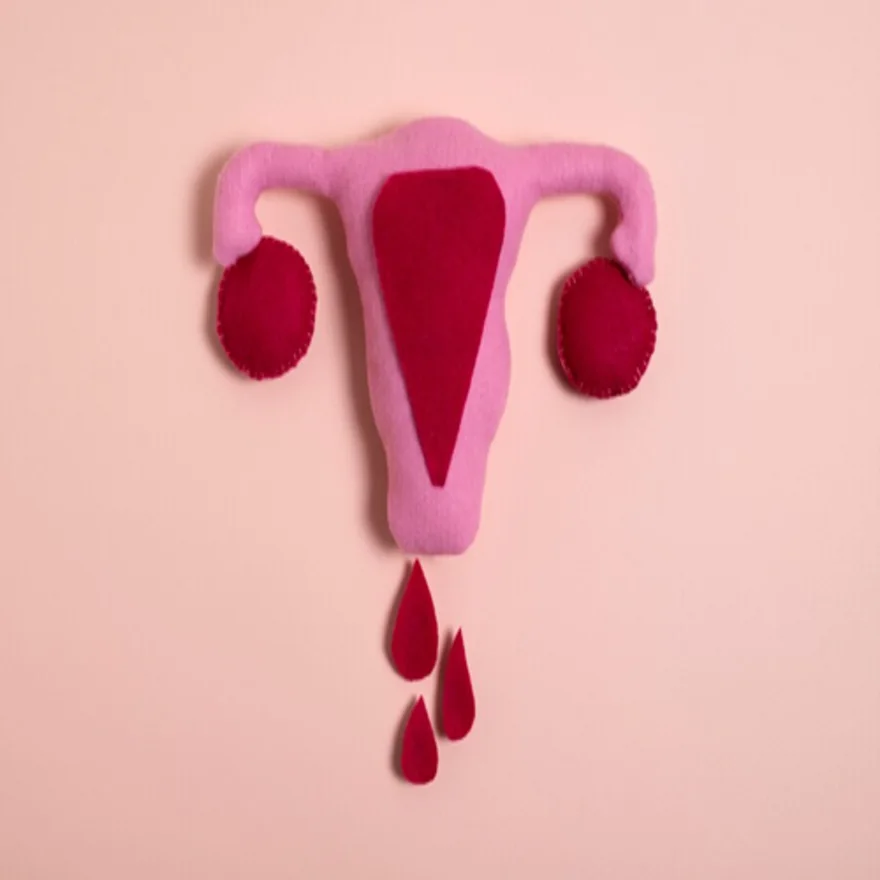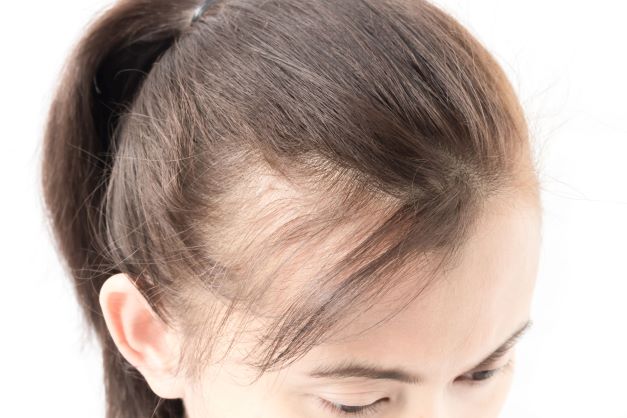Preventive Healthcare
Epispadias: Causes, Diagnosis, and Treatment for This Rare Birth Defect
693 Views
0

What is epispadias?
Epispadias is a congenital anomaly characterised by the incomplete development of the urethra. In this condition, the urethra does not form into a full tube, causing urine to exit the body from an abnormal location. Epispadias is an extremely rare condition, occurring in approximately 1 in 117,000 newborn boys and 1 in 484,000 newborn girls.
What is bladder exstrophy?
Bladder exstrophy is another rare birth defect that is often associated with epispadias. In this condition, the bladder is open through the wall of the abdomen. Nearly all boys with bladder exstrophy also have epispadias, and most girls with exstrophy have epispadias as well.
How does epispadias affect males?
In boys with epispadias, the urethra typically opens on the top or side of the penis rather than at the tip. The penis may appear short and wide, with an abnormal curvature known as chordee. Some common epispadias symptoms in males include:
- Irregular spraying of urine
- Frequent urine leakage, especially when coughing, laughing, or sneezing
- Recurrent urinary tract infections
What are the types of epispadias in males?
The classification of epispadias types in males is based on the position of the urethral opening:
- Glanular Epispadias: The urethral opening is located on the glans (tip) of the penis, which is the mildest form.
- Penile Epispadias: Here, the urethra opens along the shaft of the penis, a more moderate form.
- Penopubic Epispadias: The urethra opens near the pubic bone, often associated with more severe urinary control issues.
These epispadias types vary in severity, with the location of the urethral opening impacting the bladder's ability to store urine effectively (continence). In more severe cases, surgical intervention may be necessary to restore function and improve quality of life.
How does epispadias affect females?
In females, epispadias usually involves an abnormal clitoris and labia. An urethral opening is typically located between the clitoris and labia, though it can also be positioned in the lower abdomen. Female epispadias symptoms may include:
- Difficulty controlling urination (urinary incontinence)
- Frequent urinary tract infections (UTIs)
- Urine flowing backwards into the kidneys (reflux nephropathy)
What is epispadias vs. hypospadias?
While both epispadias and hypospadias are congenital anomalies affecting the urethra, they differ in the location of the urethral opening:
- In epispadias, the urethra opens on the top or side of the penis (in males) or between the clitoris and labia (in females).
- In hypospadias, the urethra opens on the underside of the penis (in males) or in an abnormal location in the perineal area (in females).
Hypospadias is more common, while epispadias is rarer and often associated with more severe genitourinary anomalies.
How common is epispadias?
Epispadias is an extremely rare condition, occurring in approximately:
- 1 in 117,000 newborn boys
- 1 in 484,000 newborn girls
What causes epispadias?
The exact epispadias causes are not fully understood, but several factors are believed to contribute to its development:
- Improper development of the pubic bone
- Hormonal malfunctions during fetal development
- Genetic, developmental, and environmental factors
- Embryological disturbances involving the cloacal membrane
What are the symptoms of epispadias?
The epispadias symptoms can vary depending on the sex of the child and the severity of the condition. Some common symptoms include:
In males:
- Abnormal urethral opening on the top or side of the penis
- Irregular spraying of urine
- Short and wide penis with curvature (chordee)
- Frequent urine leakage
- Recurrent urinary tract infections
In females:
- Abnormal appearance of the clitoris and labia
- Urinary incontinence
- Frequent urinary tract infections
In both sexes:
- Backwards flow of urine into the kidney (reflux nephropathy)
- Widened pubic bone
- Difficulty controlling urination
How is epispadias diagnosed?
Epispadias is typically diagnosed at birth or shortly thereafter through a physical examination of the child's genital and urinary systems. Further diagnostic tests may include:
- Blood tests to evaluate electrolyte levels
- Intravenous pyelogram (IVP) to visualize the kidneys, bladder, and ureters
- Ultrasound of the urogenital system
- MRI and CT scans, depending on the specific presentation of the condition
What tests will our baby need for epispadias?
If your baby is diagnosed with epispadias, several tests may be conducted to assess their condition and plan the appropriate epispadias treatment. These tests may include:
- Blood tests to evaluate kidney function
- Intravenous pyelogram (IVP) to visualize the kidneys, bladder, and ureters
- Ultrasound of the urinary system and genitals
- Pelvic X-ray
- MRI and CT scans, if necessary
Is epispadias diagnosed during pregnancy?
Epispadias is rarely diagnosed during pregnancy, as it is not easily detectable on routine prenatal ultrasounds. In some cases, associated anomalies like bladder exstrophy may be seen on detailed ultrasounds, raising suspicion for epispadias. A definitive diagnosis is typically confirmed after the baby is born.
How is epispadias treated?
The primary epispadias treatment is surgical correction, which aims to reconstruct the urethra, reposition the urethral opening, and improve the appearance and function of the genitals. The specific surgical approach depends on the type and severity of epispadias, as well as the sex of the child.
What is the goal of epispadias surgery for boys?
The main goals of epispadias surgery for boys are to:
- Reconstruct the urethra to allow for normal urination
- Correct any curvature of the penis (chordee)
- Improve the cosmetic appearance of the penis
- Preserve sexual function and fertility
What are the types of epispadias surgery for boys?
The main types of epispadias surgery for boys include:
- Cantwell-Ransley repair: This involves creating a new urethra using tissue from the existing urethra and skin from the penis.
- Mitchell repair: This technique uses the inner lining of the bladder to create a new urethra and reconstruct the penis.
Your paediatric urologist will determine the best surgical approach based on your son's specific anatomy and needs.
What are epispadias surgery options for girls?
Epispadias surgery options for girls focus on:
- Reconstructing the urethra and repositioning the urethral opening to its correct location
- Correcting abnormalities of the clitoris and labia for proper genital structure
- Improving urinary continence, helping the bladder retain urine effectively
The surgical approach depends on the condition’s severity and may involve using tissue from surrounding areas to reconstruct the urethra and genitalia. These procedures are tailored to each individual to achieve both functional and aesthetic outcomes, enhancing urinary control and overall well-being.
How long will it take to recover from epispadias surgery?
The recovery time after epispadias surgery varies depending on the type and extent of the procedure. In general, children may need to stay in the hospital for several days to a week following surgery. Full recovery may take several weeks to a few months.
Can I prevent epispadias?
As epispadias is a congenital condition that develops during foetal development, there is no known way to prevent it from occurring.
What is the outlook for children with epispadias?
With proper epispadias treatment and follow-up care, most children with this condition can achieve good outcomes and lead normal, healthy lives. However, some children may experience ongoing issues with urinary incontinence, recurrent urinary tract infections, or sexual dysfunction later in life. Regular follow-up with a urologist and other specialists is essential.
Are there complications from epispadias surgery?
As with any surgical procedure, there are potential risks and complications associated with epispadias surgery. These may include:
- Bleeding
- Infection
- Urethral strictures (narrowing of the reconstructed urethra)
- Urinary incontinence
- Fistula formation (abnormal opening between the urethra and skin)
- Need for additional surgeries
How can we best take care of our baby?
Caring for a baby with epispadias involves attending follow-up appointments, following post-operative care, monitoring for infection signs, encouraging healthy habits, and seeking support from family and support groups.
When to see a doctor?
If you suspect that your baby may have epispadias or any other congenital urological condition, it is essential to consult your paediatrician or urologist promptly. Additionally, if your child is experiencing any concerning epispadias symptoms, contact a healthcare provider immediately.
Does epispadias surgery affect erectile function?
In most cases, epispadias treatment does not negatively impact erectile function.
Does epispadias affect fertility?
Most males with epispadias who undergo successful surgical correction can maintain normal fertility. However, in some cases, the condition may be associated with abnormalities of the testicles or spermatic ducts, which could impact fertility. Regular follow-up with a urologist can help monitor fertility and address any potential issues.
If our child had epispadias, are they at higher risk for urinary tract infections?
Children with a history of epispadias may be at an increased risk for recurrent urinary tract infections (UTIs), particularly if they experience ongoing urinary incontinence or have anatomical abnormalities.
Can a baby boy with epispadias have a circumcision?
In most cases, circumcision is not recommended for baby boys with epispadias, as the foreskin may be needed for future reconstructive surgery. Consult your child's urologist for personalized guidance.
Conclusion
In conclusion, successfully managing epispadias requires an early diagnosis, consistent medical care, and personalized treatment tailored as per each child's needs. Metropolis Healthcare offers comprehensive diagnostic services and convenient at-home support, ensuring families can easily access the necessary tests and care. By prioritizing an early detection and timely intervention, parents can significantly improve their child’s health and developmental outcomes.













1701259759.webp)




















 WhatsApp
WhatsApp